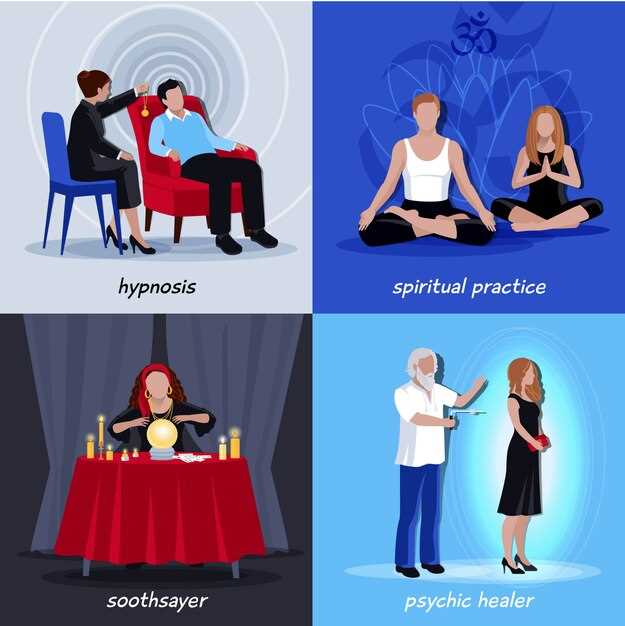
Begin with a 10-minute mindful check-in to observe mood, not react to it. This approach flows from evidence showing awareness cuts impulsive choices. Use a simple 0–10 scale to note energy, sleep, appetite; track status over weeks to see patterns. Many people report mood fluctuations during changes in status; awareness helps soften ambivalence, reduce loss. This process can ensure you stay aligned with what you value rather than chase quick validation on apps.
Choose concrete activities to fill silence. After work hours, join a class; take a walk; volunteer; these experiences boost mood, widen social circles, reduce loss. When you chose to shift patterns away from chasing status in apps, you gain mastery over daily life. Keep a simple log of experiences to document progress; this источник becomes evidence that change is possible.
Preserve healthy relationships by staying open to change. Regular check-ins among trusted friends provide a stable base; a ottimo way to monitor ambivalence, mood shifts, fear of loss. A plan to stay connected reduces the lure of rushed commitments. If a social circle feels stale, leave a few apps; the point is to create ongoing connection beyond screens.
Focus on finding meaning in daily routine. A mindful approach means noticing what sustains you besides romance: hobbies, skill-building, volunteering. Researchers report that deliberate attention to values reduces ambivalence; it helps turn loss into a signal for change. What matters is consistency; a small, reliable practice each day builds resilience.
Reframe setbacks as data rather than failure. Each experience offers lessons: what you observed, what you chose, what you will adjust. Treat past relationships as sources of insight; they gave clues about preferences, boundaries, what you value in care. This mindset lowers self-judgment, keeps you moving toward meaningful connections.
Maintain a practical plan for daily vitality. Sleep, nutrition, movement matter; ensure regular meals, light exercise, sunlight. If you face ambivalence, schedule a weekly meetup; progress is often cumulative, not instant. The status you hold today is a point you chose; stay consistent yields growth, not abrupt life changes.
Practical, Actionable Guide for Singles
Begin with a concrete daily routine that prioritizes self-care and social connection. theres a simple truth: small, steady steps beat big, sporadic bursts. A thing to remember: your days stay steadier when you build a routine around three pillars: movement, learning, and contact with others. This approach has worked along years for many people, and it is designed to be sustainable rather than a quick fix.
Make a weekly plan with concrete targets: two 30-minute workouts, one learning block, and one check-in with a friend. The thing is to start small and stay consistent. If youre using apps to connect, pick 1-2 platforms and limit scrolling time to a maximum 20 minutes per day to avoid fatigue. Reach out to someone you havent spoken to in a while and offer a quick check-in; this creates opportunity to rebuild connection and support.
Build your support by inviting one friend to a regular activity, like a walk, a class, or a coffee. Been consistent with invitations matters: the more you make them happen, the more likely you are to maintain relationships long term. To ensure momentum, set a recurring plan for the same day each week and track what worked.
Use practical self-checks to monitor mood and energy. Check in each evening: what helped you today, what drained you, and what you want to do differently tomorrow. Stay curious about your feelings, and write 1-2 sentences in a short journal; this builds yourself resilience and gives you a reference for years to come.
Take on a small project that gives you a sense of purpose: volunteer, learn a skill, or mentor someone. This is an opportunity to meet new people, stay engaged, and build a steady source of value – istредничний источник of calm when days feel long.
Make sure to track progress toward your goals. Reached micro-milestones, like maintaining a habit for a full week, then celebrate with a simple reward. Youre making progress–and many years have shown that momentum grows when you keep showing up for yourself.
Label Emotions Quickly to Reduce Overwhelm
Label emotions within 5 seconds after they surface; choose just a one-word label such as sad, anxious, or frustrated.
This quick labeling reduces mental load; likely preventing escalation in tense moments; instead, it supports healthier reacting patterns.
Use a 3-step routine: name the feeling; assess its health impact; choose a next move that restores balance.
In a team context, labeling becomes a shared practice, redefining their status quo toward closure.
Here is a starter set of labels to begin with: fear, sadness, anger, anxiety, frustration, loneliness, relief, hope, excitement.
embrace their emotions; accepting the status; redefining balance; leaving behind patterns that harm health; this is a vital step.
Finding closure becomes likely; the label made space for a clearer next move; mood improves.
Rather than dwelling, leave behind leftovers; those patterns never serve.
Handle triggers here without stepping into overload.
Together this becomes a team practice; progress feels tangible.
| Emozione | Label | Quick Move |
|---|---|---|
| Fear | Fear | Name; 3 breaths; observe |
| Loneliness | Loneliness | Name; brief contact plan |
| Anger | Anger | Name; pause; reset pace |
| Hope | Hope | Name; breathe; reorient |
Build Daily Routines That Fight Loneliness
Schedule a 20-minute morning check-in to set balance as a theme for the day; note one specific area where you could grow; write a thought you want to reframe later.
- Morning check-in: set balance as a theme for the day; list one personal goal; choose a specific action; record a thought that could block connection; reframe it into a plan for a small interaction.
- Midday contact: reach out to one other person; propose a 10-minute chat; mention an experience you would be discussing.
- Evening reflection: recount three moments of happiness here; consider personal progress; discussing whether you want more support tomorrow.
- Weekly trips or experiences: schedule a brief outing in an area new to routine; choose something different; note what experiences moved you toward belonging; this can feel rewarding.
- Self care moment: allocate a cuddle by a pet or a hug from a friend; weave a ritual such as a warm drink, a short walk, or music that supports mood.
There is value in small steps; usually these routines become part of a whole that helps you feel less unable to connect; those small steps could transform private experiences into shared moments; you deserve happiness; these routines help you build balance in personal areas of life; a trusted source said small routines matter.
Remap Self-Worth Beyond Relationship Status
Make this one change today: think of your value as whole, independent of whether you’re dating or single. This awareness usually dissolves the habit of defining yourself by a partner’s presence. Here you start validating yourself through actions, not status.
If isolation hits, enter a small action that demonstrates capability: step into a new activity, start a project, or reconnect through someone you know in the community. Each stepping small shows you can build meaning without relying on others. You are not alone. This can be done together alongside a friend.
C'è significato nel progresso personale; quando impari nuove abilità, trasformi il fallimento in feedback, dimostrando a te stesso che conti per ragioni che non hanno nulla a che fare con un partner, un percorso di apprendimento. Il tuo valore si basa su più di un singolo momento; non riguarda solo il romanticismo. Qui, l'apprendimento è una graduale espansione del tuo senso di sé.
Costruire una routine che rafforzi l'autonomia ti aiuta a sentirti libero. Fai qualcosa di tangibile ogni giorno che puoi indicare come prova della tua capacità; costruisci qualcosa, finisci un progetto o approfondisci un hobby. Scegli questa strada; ti fa sentire meglio piuttosto che inseguire lodi esterne.
Se insegui il rispetto degli altri, rischi un fragile senso di te stesso. Invece, coltiva standard che tu stesso puoi raggiungere. Il risultato è una fiducia costante che rende più forti le connessioni future. Questo è il punto: il tuo valore viene da dentro, non dalla convalida esterna. Una persona che rispetterebbe la tua indipendenza attrarrà il giusto tipo di attenzione.
Costruire relazioni è una dimensione, ma devi anche investire in legami non romantici. Incontra un amico per un caffè, fai l'allenatore di un gruppo giovanile o contribuisci a una causa. Questi passaggi migliorano il tuo umore; ti danno una metrica al di là dello stato degli appuntamenti, preparandoti meglio per partner autentici quando compaiono.
Qui puoi monitorare i progressi: tieni un semplice registro di tre elementi ogni giorno: imparare qualcosa di nuovo, aiutare qualcuno o entrare in un nuovo ambiente. Col tempo, noterai che la tua autostima non è legata a un singolo risultato o relazione.
Lo status di single è una fase, non un verdetto. Concentrati a costruire significato nel lavoro, nella creatività, nel servizio; ti muovi verso una libertà che ti rende più resiliente in qualsiasi relazione tu scelga in seguito. Le risorse necessarie sono tempo, pazienza, supporto.
Usa una sfida di pensiero rapido per riformulare il rifiuto

Iniziando qui questa rapida sfida di pensiero, discutendo dei sentimenti negativi scatenati dal rifiuto che non permettono loro di definire la propria visione. Quali sono le prove a sostegno di questa convinzione; quali contraddizioni sorgono? Guarda due fatti da interazioni recenti che contraddicono la loro convinzione, quindi annotali qui.
Non lasciare mai che questa cosa si trascini: scrivi due brevi affermazioni che riformulino la scena. Forse l'attenzione è stata interpretata male, forse un segnale mancato diventa un indizio per l'apprendimento. Cerca piccoli cambiamenti, quindi trasferiscili a una semplice azione che è stata utile per le interazioni quotidiane, solo due punti.
Durante i periodi di isolamento, esercizi coinvolgenti aiutano a guarire. Considera i pensieri come condizioni meteorologiche passeggere; indugiano e poi passano. Riformulare cambia l'aspetto delle interazioni, mentre l'umore si stabilizza attraverso la pratica, producendo risultati positivi rapidi.
Le risorse coinvolgenti includono libri, fonti affidabili, colleghi fidati; questo ti mantiene con i piedi per terra, qui, là. Rintraccia l'источник di una convinzione fino a un'occasione concreta - forse un'interazione difficile, un ricordo riaffiorato durante i viaggi, o un'osservazione di un collega; poi riformula il significato che attribuisci.
Amplia la tua cerchia sociale con piccoli passi realistici

Invita una persona per una passeggiata di 30 minuti questa settimana. Noterai un piccolo cambiamento nell'umore, un aumento della fiducia sociale, un senso di possibilità che alimenta i piani futuri. Concentrati su un'andatura costante; ogni passo ti aiuta a sentirti capace, a ridurre i sentimenti di isolamento.
- Decisione: scegli un singolo micro-obiettivo ogni settimana; le opzioni includono un incontro, un discorso in biblioteca, una sessione di un club del libro.
- Passo 2: Concentrati sull'ascolto; formula una domanda aperta su un libro o un hobby preferito.
- Passo 3: Entrare negli spazi condivisi: unisciti a un team locale, a un progetto di volontariato o a un laboratorio.
- Passo 4: Crea una semplice routine di calendario: partecipa a due eventi a bassa pressione al mese; prendi nota degli argomenti che suscitano interesse; registra le sensazioni, cosa hai imparato.
- Passo 5: Costruisci una squadra intorno a te; contatta alcune persone, proponi un'attività congiunta, scegli spazi in cui ti senti a tuo agio.
Forse le questioni sociali modellano le scelte; accettare la perdita, il dolore emerge quando la compagnia cambia. Il significato arriva attraverso la scoperta di piccoli momenti di connessione. Non sei solo; io stesso mi ricordo che il progresso compiuto si basa sul camminare, non sui salti. Raggiungendo le pietre miliari, inizi a sentirti più capace, più abile nel trovare significato nelle cose di tutti i giorni. Passi graduali hanno portato a un cambiamento duraturo nell'umore; le relazioni crescono. Concentrarsi su ciò che funziona ti aiuta a continuare ad andare avanti. Leggere libri su argomenti che ti piacciono favorisce conversazioni significative tra coloro che incontri.











